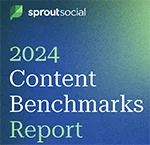 |
 |
| Eric Lebson and Ian Christopher McCaleb authored this piece. | |
Decades later, many of my younger colleagues have grown up with access to incalculable terabytes of information that’s always just a few clicks away. And as information has become more readily available, the premium placed on privacy has diminished. Where one can find a wealth of data on the Internet, one can also leave the same, often without realizing that in the business intelligence world, each bit of casually left information is another needle in the haystack in which business intelligence practitioners are searching.
The expansion of social media — from Facebook to Snapchat and everything in between — has shifted the public consciousness from a privacy-centric attitude seen just a decade ago to a new “look at me” mindset. As a result, an easy, quick search of any of the popular platforms can often reveal where someone lives, who his or her friends are, where they spend their time, or even what they ate for lunch. And any self-determined “investigator” can find, mine and exploit this data.
This has created problems for members of the Millennial generation looking to enter the workforce. Potential employers no longer just have access to resumes; they can now also search social media for information, and make determinations about an applicants’ judgment and skills by what they have posted, what organizations or groups they belong to, what kind of affiliations and affinities they declare, and even what political positions they support. Questions that one cannot, by law, ask in a job interview are now relatively easy to answer through a few cursory social media sweeps. The applications for how such knowledge can be used are limitless, but one thing is clear: having more personal or intimate information can afford an advantage in everything from hiring to negotiations, to the balance of power in a conflict.
As an investigator, social media has also been a boon for those who practice my trade. Previously, we had to rely on invasive techniques to dig up details of past mistakes, but now an ill-advised social media post that can never be fully erased will memorialize a bad choice, however fleeting that choice may have been, and provide significant investigative insight or a trail of breadcrumbs to more alluring — and damaging — information.
Expand the use of social media data to litigation matters, for instance, and its power stands out all the more readily. For example, say someone is a fact witness that is preparing to be subjected to an upcoming deposition. Knowing about the expectant witness’ personal life affords the attorney who is asking the questions a great deal of context in which he or she can present their line or lines of inquiry. The attorney can also use material culled from social media to knock a witness off his or her game, by adding the right discomforting or embarrassing elements to the exchange at just the right time.
Suddenly, all that disregarded online personal information becomes a weapon, one that can be wielded against the very person who released it into the public realm in the first place. And when it comes to investigative resources, which in turn might be put to use in crafting crisis or litigation communications products and strategies, there may be no greater wellspring of data out there than that which so many have made public willingly.
Much as information access has proliferated, so too have the people who claim to be investigators, a regulated profession that invokes a certain presumption of expertise. Where true investigators often charge tens or hundreds of thousands of dollars for projects that can stand scrutiny in court or on which billion dollar transactions are based, some companies are taking a shortcut by having an intern “run a few Google searches” to see what they come up with. But there’s a big difference between knowing what one is seeking and simply reporting what one finds.
As the haystack gets bigger, the value of knowing what a needle looks like also increases. Understanding the nature of information, what should and should not be forthcoming, and how to judge the relative value of two pieces is why one seeks out an investigator with experience and skills. I always love it when a prospective client asks me, “So are you just going to Google it?” My reply: “Absolutely, among other things. But it isn’t the search that matters — what’s important is the person assessing what the results mean.”
* * *
Eric Lebson and Ian Christopher McCaleb are business intelligence practitioners at LEVICK, a public affairs and crisis communications firm. They routinely assist foreign clients with laying the groundwork to anticipate and navigate political risk scenarios that impact their bottom line.


 What if companies could harness the fury of online outrage into a force for good? This is precisely where companies can start turning the trolls into brand champions.
What if companies could harness the fury of online outrage into a force for good? This is precisely where companies can start turning the trolls into brand champions. Audiences interacted with brand content far more often on Facebook and Instagram in 2023 than they did via X (formerly Twitter), according to a report that tracked engagement trends across different social networks.
Audiences interacted with brand content far more often on Facebook and Instagram in 2023 than they did via X (formerly Twitter), according to a report that tracked engagement trends across different social networks. Can public relations help counteract the dissension fostered by the power of digital platforms to spread hate, fear and confusion?
Can public relations help counteract the dissension fostered by the power of digital platforms to spread hate, fear and confusion? The number of Americans who get their news from TikTok has quadrupled in the last three years, according to a recent Pew Research Center report.
The number of Americans who get their news from TikTok has quadrupled in the last three years, according to a recent Pew Research Center report.


 Have a comment? Send it to
Have a comment? Send it to 
No comments have been submitted for this story yet.